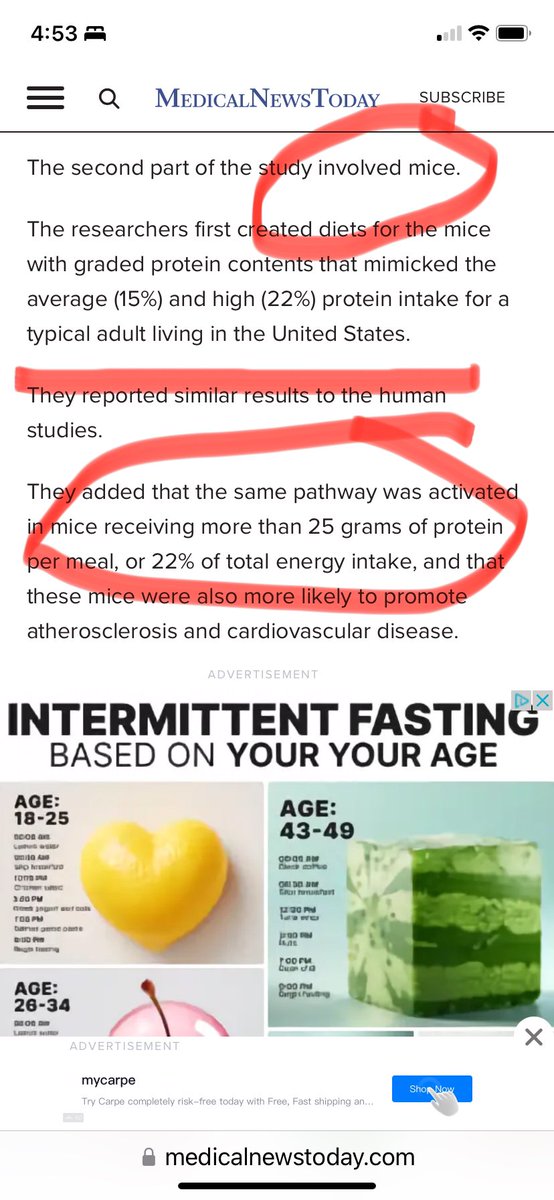Recently an article got everyone's knickers in a twist about protein and CVD. Here's an easy to read summary of the paper with my pictorial essay medicalnewstoday.com/articles/eatin…
High protein diets may contribute (!!) but we should revise dietary guidelines (???) In our 2020 paper also in mice 🐭 🤨 

Part I - 14 people! Part II - 9 people. Leucine - no reference or data 'cept for a 2020 paper in? You guessed it 🐁 😉
Activates a pathway in immune cells that's ASSociated with atherosclerosis... 🤔
Activates a pathway in immune cells that's ASSociated with atherosclerosis... 🤔

Now we 'pin down' the reason - now it's causal (??) Leu is the 'bad actor' 🫤 (in mice anyway and 22% is the magic threshold) 

2020 study in 🐁🐭
Another dude thinks this is not a big deal (I'd agree)
Takeaway... 23 people and acute immune cell signalling
Mice and 22% protein that 'mimics' the higher end of what humans ingest
It's only Leu...
Another dude thinks this is not a big deal (I'd agree)
Takeaway... 23 people and acute immune cell signalling
Mice and 22% protein that 'mimics' the higher end of what humans ingest
It's only Leu...

Time to have a hard think about what the science is and the message being pushed. The data are mildly interesting and give some food for thought. I stop (well) short of seeing this as a smoking (protein-filled) fun and the reason to change dietary guidance OR to issue a per meal or dietary threshold advice to people.
I note the absence of a disease incidence, or risk or any causative data in humans...
Carry on folks: exercise, fuel to meet your needs, enjoy time with friends, lower your stress, have purpose in life and you will live well
Also, don't drink Boost with more protein on top... and stop feeding your mouse >22% protein! 😉
I note the absence of a disease incidence, or risk or any causative data in humans...
Carry on folks: exercise, fuel to meet your needs, enjoy time with friends, lower your stress, have purpose in life and you will live well
Also, don't drink Boost with more protein on top... and stop feeding your mouse >22% protein! 😉
Just appreciate the limitations of the data and the model and the design and the ex-vivo outcomes and the murine model before we blow the horn for protein 'causes' CVD (or even increases risk). Also #Science
@threadreaderapp unroll svp
• • •
Missing some Tweet in this thread? You can try to
force a refresh







